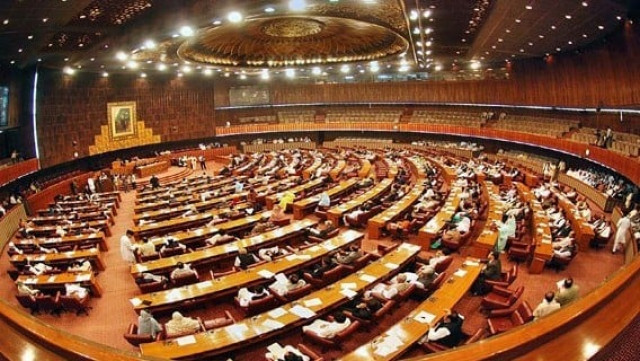Transparency law on the anvil
‘The Right to Information Act 2010’ placed on the NA agenda for current session, meant to 'combat corruption'.

The objective of the bill is to provide for the recognition of the right to information and its role in the promotion of transparent governance.
“Whereas the right to access to information is guaranteed to the citizens of Pakistan under Article 19A of the constitution, it is necessary to ensure that restrictions on this right imposed by law do not exceed the constitutionally permissible limits,” it states.
The new law, meant to be applied to the whole of Pakistan, is described as a pre-requisite for combating corruption, ensuring transparency and promoting public accountability.
According to the 18th Amendment, the new article shall be inserted, “namely: 19A. Right to information: Every citizen shall have the right to have access to information in all matters of public importance subject to regulation.”
The Pakistan Peoples Party (PPP) was the first to acknowledge the need to move a Right to Information Law and to repeal the flawed 2002 Ordinance that had been dubbed by all media bodies a “Disinformation Law”.
The RTI bill seeks to repeal and introduce an entirely new act of parliament such as the one proposed in the bill.
To this effect, a 2004 draft law moved by Rehman on behalf of the PPP was again circulated to all the provinces, after the Prime Minister’s approval in April 2008.
It was circulated by then Minister of Information and Broadcasting, Sherry Rehman, for cabinet consultation.
That bill now seems to be with Cabinet division as the department that coordinates public and government record and inter-ministerial documents.
“Unlike the Freedom of Information Ordinance of 2002 which contained no declassification clause regarding public records or time frame, the PPP Bill introduced such a clause so that there was scope for public bodies being eventually held responsible for wrongs done to individuals,” a statement reads.
This holds out hope that citizens would finally be able to seek transparency and enjoy democracy in its true form, it adds.
Summary of proposals in the 'Right to Information Act 2010'
- To recognise the growing hold of the private sector on public services and therefore including them in the realm of responsibility.
- To require organizations to proactively publish their records of structure, budget and modus operandi.
- To give further protection to whistle-blowers, thus taking positive steps to encourage penalising the breach of the right to information.
- To restrict the exceptions where information may be protected from the public within clear grounds
- To ensure that all restrictions and exceptions on the right to information are weighed against the greater public interest
- To require decisions not to grant information to a requestor explained clearly to him and point out alternatives to the requestor
- To suggest the existence of a Body that can monitor and provide guidance for the issuance of records to Public Information Officer
Read the entire text of the bill here.
Published in The Express Tribune, November 11th, 2010.



















COMMENTS
Comments are moderated and generally will be posted if they are on-topic and not abusive.
For more information, please see our Comments FAQ